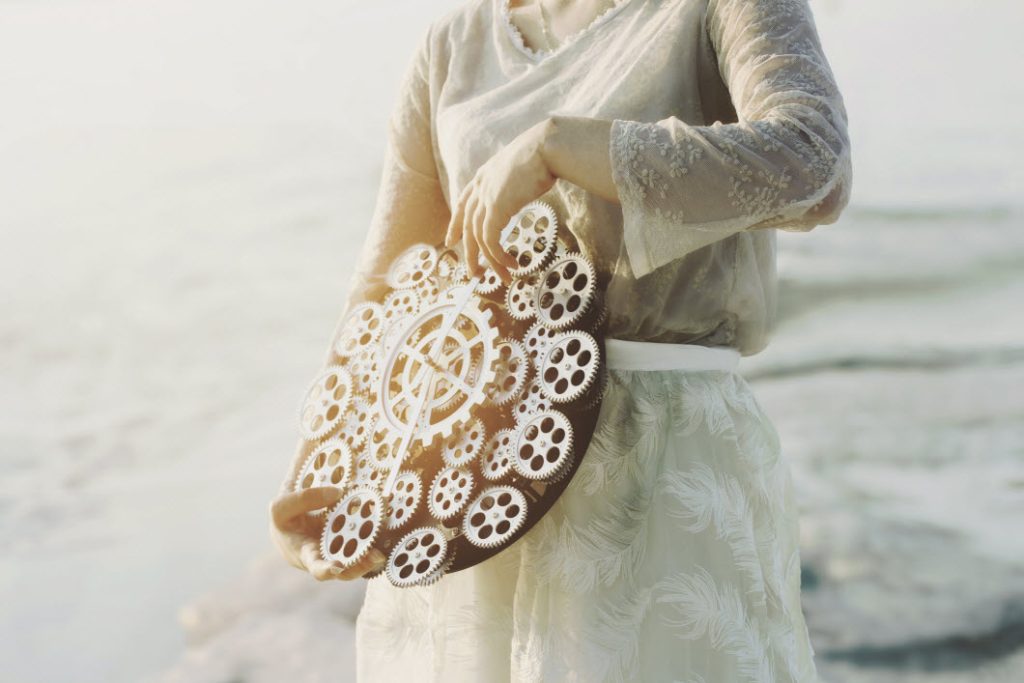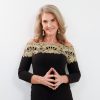Growing up, I wondered if I’d been delivered to the wrong address. My parents and my siblings were extremely sporty and academic. I was the quiet shy child wanting to be invisible.
I found my refuge in my love of animals and in reading. I became a sensitive observer of the world around me. On the surface, our lives seemed idyllic. But underneath that apparent facade was a deeper double life that no one knew about, not even my best friend at school.
My father was a pillar of society as a Rotarian, a humanitarian and a successful entrepreneur. But he battled severe bipolar at a time when there was no name for the disease. He battled with the stigma of medication. When things were great my father was charismatic and a visionary, but when the disease gripped him, he spiralled into rage and despair.
He would drive off, tyres squealing into the night, saying I’m going to drive off a nearby mountain. The sadness suffused my soul. I buried myself in emotional eating. I swallowed my pain and stuffed the anguish down my throat.
It set in motion a deep pattern of emotional eating that I would battle for 50 years. I later found my belonging as a political activist in the anti-apartheid movement, where my immersion in the trade union movement gave me a deep sense of meaning.
I knew as a sociologist that the only way to topple apartheid was through the economic muscle of the worker movement. In that community, I did not feel judged by my weight which yo-yoed from extreme diets, flirting on the fringes of anorexia to ballooning up again, a never-ending rollercoaster of emotions.
As an entrepreneur in my 40s, I became slightly more visible and on the surface more apparently confident, but it was still a facade. My kind and patient husband and my children allowed me to feel a deeper sense of belonging, but I still battled imposter syndrome as well as constant anxiety and a lingering depression.
Halfway through our entrepreneurial journey, when we had won many awards, having been featured on radio, television and in entrepreneur magazines, we crashed. We discovered that our trusted bookkeeper of eight long years had been defrauding us of more than 10 million rand.
We were on our knees. We had to build a court case, build new company systems, rebuild staff morale, rebuild our marriage, but above all I had to rebuild myself. That fraud became my greatest gift.
In my brokenness I took a brave step. For the first time in my life, I signed up with a personal trainer, a kind man who specialised in leadership development. I walked into the gym in my big baggy black tracksuit.
I could not look in the mirror. I had always been terrified of gyms and all they represented. I could not look at the youthful lycra-clad bodies around me. I kept my head down and mumbled under my breath in victim mode for an entire year.
Then something shifted. I started to feel less in my head and more in my body. I joined Run Walk for Life because there were walkers and runners from all ages. So began a different journey. I remember one morning at the start of a chilly race in Pretoria. I was about to do a 21km race which I had started to do quite regularly. I heard the marshall say: “Athletes, are you ready?” I could not believe it. Yet it was true. I had become an athlete. I had become a different person. I had started to live more in my body and less in my head.
For so much of my life I’d been so disassociated from my body. From the age of 52 to 60, I ran, I went to the gym, I swam, I did Yoga, but it was still a journey of control. I knew that if I ran far enough, I could eat and not put on weight.
I still had a fearful relationship with food. Food had always been the enemy. Food had represented torment and anguish. Sometimes I would hardly eat at the dinner table and then, late at night, find myself annihilating the refrigerator.
The constant yo-yo dieting morphed into different periods of bulimia in different stages of my life as a coping mechanism to deal with the anguish in my soul. It was a way of numbing myself, just like others numbed themselves through cutting or alcohol or gambling or shopping.
My health journey in my 50s helped me find a different way. But in my 60s, it became a deeply spiritual journey. A journey of the soul in which I was finally able to find wholeness. To change not just the shape of my body but the very shape of my soul.
At the age of 60 I stopped weighing myself. I started living in a different realm. A world of non-judgment. A world of just being. At the age of 60, I attended a remarkable global summit where I heard powerful storytellers that made me realise the power of words to change somebody’s life from the stage and from the page.
I realised that I did have a profound story to tell. Not just my awakening to become a political activist for almost 20 years. But my awakening to live a different life. To become literally a different person.
I became fascinated in what I call identity intelligence. The deep sense of knowing why you came to earth in this particular form, in this particular shape and the power of your story to change other people’s lives.
From wanting to be invisible to battling imposter syndrome as an entrepreneur, I finally felt whole when I became a vulnerable storyteller, sharing my struggles, becoming known as a ‘soulspeaker’. Being brutally honest about the wounds of ‘not good enough-ness’ that had plagued my entire life and how those wounds had scarred my daughter in particular.
This year, I wrote her a letter asking for her forgiveness. Forgiveness for the person I used to be. Now in my mid 60s, I have finally found peace and wholeness. I have not weighed myself for six long years. My identity is no longer tied to a number on the scale.
The only scale I have in my home is a small scale to weigh our luggage. I love cooking healthy meals. Food is no longer the enemy. Food is my fuel, the language of love I get to share with my family. I feel as if I am living a second chance. A second chance to live differently.

A second chance to be a different wife, a different mother and to be an inspiration to other women that it is never too late to change your life. Now I love Reformer Pilates, weights, swimming, hiking. I move for joy not for punishment.
It’s no longer about control. It’s about an expression of my true identity. From a ‘worrier’ living in constant anxiety and depression, I have become a warrior for change, a warrior for peace. Becoming strong, living a dietless, weightless life, not tormented by the scale of judgment, has given me a peace that I never knew was possible.
Don’t wait 60 years to start loving yourself.
Don’t wait 60 years to live in your body and not your head.
Don’t wait 60 years to feed your soul.


